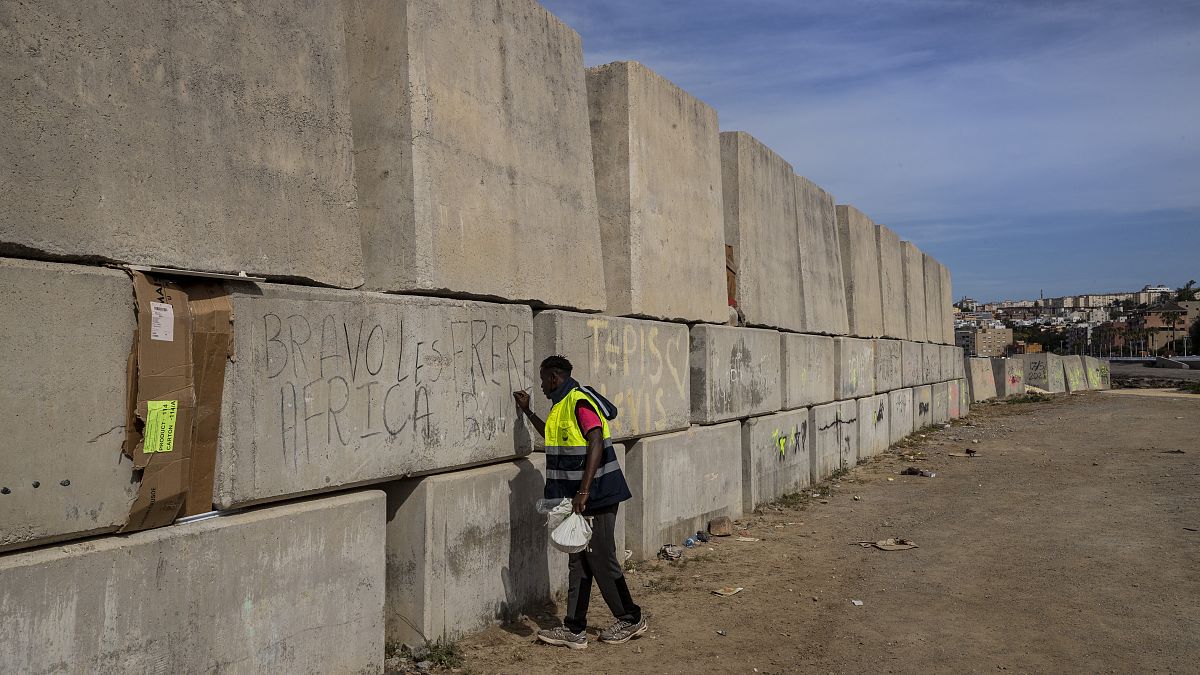Residents of Ceuta confront the sudden arrival of thousands of African migrants with sympathy, and concern, others with hostility.
Residents of Spain's multi-ethnic city of Ceuta are used to being in the news every time there's a crack in the fragile alliance between Spain and Morocco.
For many "Ceutis," as locals are known, that comes with the territory of living in a small European city on the north coast of Africa.
Ceuta is culturally closely intertwined with Morocco, with Muslims making over 40 percent of the population, but the city is also divided by high perimeter fences that separate two extremes of poverty and prosperity.
As relations between Spain and Morocco worsened this week, some residents confronted the sudden arrival of thousands of African migrants with sympathy and concern, others with hostility.
In one neighbourhood, Muslim women, moved by the plight of young Moroccan men, gathered in a traditional house to sort out and distribute donated clothes. They also cooked food and offered migrants sleeping in the streets a place to shower.
The women said the migrants could be their children - and that their plight brought memories of past times when the migrant flow was in the opposite direction.
But the solidarity was not unanimous. Several migrants spoke of attacks by groups of locals at night as they slept in the streets or fields.
Fouad, an Algerian man who was in Morocco and crossed into Ceuta earlier this week, said armed men woke him up pointing a gun at him. They beat him and others with a stick, used pepper spray on him and took his phone and money.
One migrant was taken to hospital after the beating, said Fouad, who declined to give his last name for fear of reprisal and deportation.
The arrival of 8,000 migrants in just 48 hours in a city of 85,000 was more than the result of strained relations between allies. It was a reminder of the sheer inequality between the two sides.
While per capita GDP in 2019 was 20,000 euros on the Spanish side, it drops to 2,630 euros across the border, according to the World Bank.
But the bustling businesses of Spain's Ceuta and Fnideq, the closest Moroccan town, have taken a big hit during the pandemic.
With the border closed, over 30,000 workers who used to commute across it daily have been jobless for much of the past year.
Even before the pandemic hit, nationalist voices in Rabat were reviving old claims on Ceuta and Melilla, Spain's second coastal enclave in North Africa.
That has fuelled anti-Moroccan sentiment in Ceuta, a feeling tapped into by Spain's new far-right party Vox - the city's most popular party in Spain's 2019 vote.
Vox has referred to the influx of migrants as an "invasion," but the term has been also used by some conservatives, including the autonomous city's president, Juan Jesus Vivas.
His government said more than half of the city's children skipped school on Tuesday because their parents feared instability in the streets. Some shops closed, fearing looting from cashless migrants.
But Fouad and others directed their anger at the Moroccan government for using them as pawns in the diplomatic impasse with Spain.
The government in Rabat has denied that it loosened border control to allow the migrants to cross, blaming it on the weather and the post-Ramadan "exhaustion'' of its border guards.
It has also criticized Spain for providing COVID-19 treatment to Brahim Ghail, the head of the Polisario Front that is fighting to make Western Sahara independent from Morocco, which annexed it in the 1970s.
Many from Morocco said they wanted to reach mainland Spain to find work and stability. Yaser, a 26-year-old from Tetouan, said those he knew brought skills and education with them.
"We have boys with lots of education, baccalaureates, lots of diplomas, but they don't have work,'' he said. "That is the basis of all the problems, work, rights, good life ... that is all people want.''
